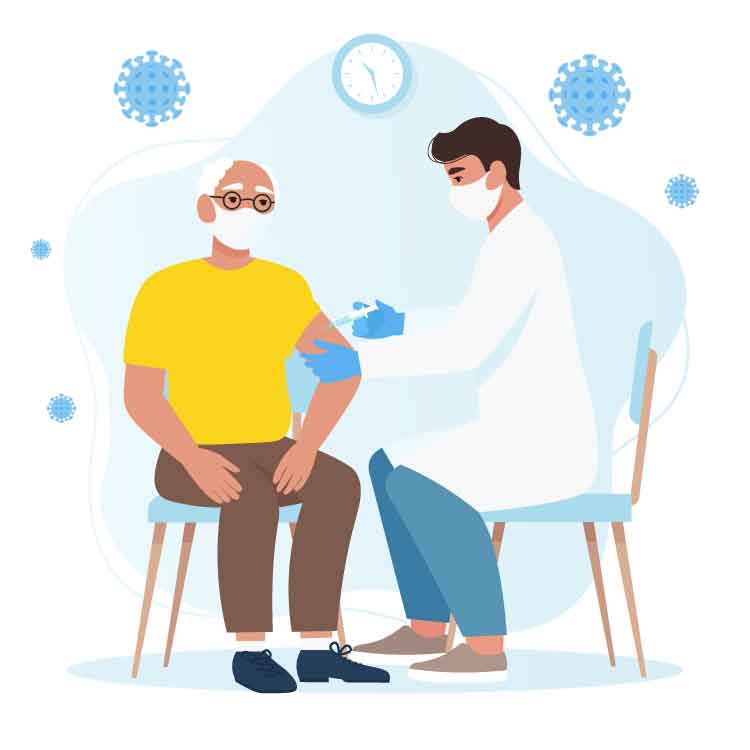COVID-19 Third Dose Authorized for Immunocompromised
FDA authorizes the third dose of mRNA COVID-19 vaccine to those who are immunocompromised.
According to the CDC, as of August 12, the FDA has modified the Emergency Use Authorizations (EAUs) for Pfizer-BioNTech and Moderna COVID-19 vaccines for the administration of an additional third dose of an mRNA COVID-19 vaccine. This third dose will be administered after an initial two-dose primary mRNA COVID-19 vaccine series for immunocompromised people. Included in CDC’s recommendation are people with a range of conditions, such as recipients of organ or stem cell transplants, people with advanced or untreated HIV infection, active recipients of treatment for cancer, people who are taking some medications that weaken the immune system, and others. A full list of conditions is found on the CDC’s website.
What is the age group for receiving the third dose?
The age groups that are authorized for this additional third dose have not changed from previous authorization to receive the primary vaccination series.
The age groups are:
- Pfizer-BioNTech: aged ≥12 years
- Moderna: aged ≥18 years
Facts about the current COVID-19 Vaccines (CDC):
- The currently FDA-authorized COVID-19 vaccines are not live vaccines and therefore can be safely administered to immunocompromised people.
- Studies indicate some immunocompromised people have a reduced immune response following a primary COVID-19 vaccine series compared to vaccine recipients who are not immunocompromised.
- Studies have further demonstrated that including an additional mRNA COVID-19 vaccine dose after an initial 2-dose primary mRNA COVID-19 vaccine series in some immunocompromised populations may enhance immune response.
- The clinical benefit of an additional mRNA vaccine dose after an initial 2-dose primary mRNA COVID-19 vaccine series for immunocompromised people is not precisely known. However, for people with moderate to severe immune compromise due to a medical condition or receipt of immunosuppressive medications or treatments, the potential to increase immune response coupled with an acceptable safety profile, support the recommendation for an additional mRNA vaccine dose after an initial 2-dose primary mRNA COVID-19 vaccine series.
- The additional dose should be administered at least 28 days after the completion of the initial mRNA COVID-19 vaccine series.
Conditions and treatments associated with moderate and severe immune compromise include but are not limited to:
- Active treatment for solid tumor and hematologic malignancies
- Receipt of solid-organ transplant and taking immunosuppressive therapy
- Receipt of CAR-T-cell or hematopoietic stem cell transplant (within 2 years of transplantation or taking immunosuppression therapy)
- Moderate or severe primary immunodeficiency (e.g., DiGeorge syndrome, Wiskott-Aldrich syndrome)
- Advanced or untreated HIV infection
- Active treatment with high-dose corticosteroids (i.e., ≥20mg prednisone or equivalent per day), alkylating agents, antimetabolites, transplant-related immunosuppressive drugs, cancer chemotherapeutic agents classified as severely immunosuppressive, tumor-necrosis (TNF) blockers, and other biologic agents that are immunosuppressive or immunomodulatory.
For more information about the COVID-19 vaccines, including when you can get yours at a Compassion Health Care, Inc. medical site in Yanceyville or Eden, call 336-694-1181. You can also visit the CDC website for updated information about COVID-19 vaccines.

